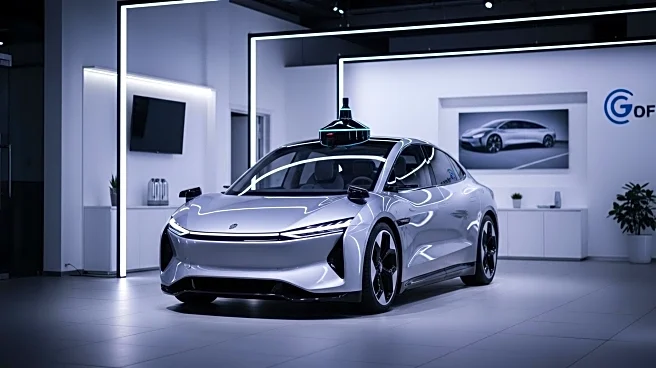What's Happening?
Tesla's Full Self-Driving (FSD) software is under scrutiny following reports of vehicles failing to stop at railroad crossings, posing significant safety risks. According to NBC News, multiple Tesla drivers have experienced their cars malfunctioning near railroad crossings, with some narrowly avoiding collisions with oncoming trains. The National Highway Traffic Safety Administration (NHTSA) has acknowledged these incidents and is in communication with Tesla. Despite the branding of 'Full Self-Driving,' the software is classified as Level 2, requiring human supervision. The California DMV has sued Tesla for false advertising over the FSD name, leading to a modification to 'Full Self-Driving (Supervised).' Tesla's claims of achieving fully autonomous driving have been criticized, with incidents raising questions about the software's reliability.
Why It's Important?
The safety concerns surrounding Tesla's FSD software have significant implications for the automotive industry and public safety. The repeated failures at railroad crossings highlight potential flaws in Tesla's autonomous technology, which could lead to accidents and legal challenges. The scrutiny from regulatory bodies like the NHTSA and lawsuits from the DMV could impact Tesla's reputation and financial standing. As Tesla competes with other automakers in the autonomous vehicle market, addressing these safety issues is crucial to maintaining consumer trust and avoiding further legal repercussions.
What's Next?
Tesla may face increased pressure from regulatory agencies to improve its FSD software and address safety concerns. The company could be required to provide more transparency about its technology and implement additional safety measures. Competitors like Waymo, which reportedly do not face similar issues, may gain an advantage in the autonomous vehicle market. Tesla's ongoing legal battles and regulatory scrutiny could influence future developments in autonomous driving technology and industry standards.











